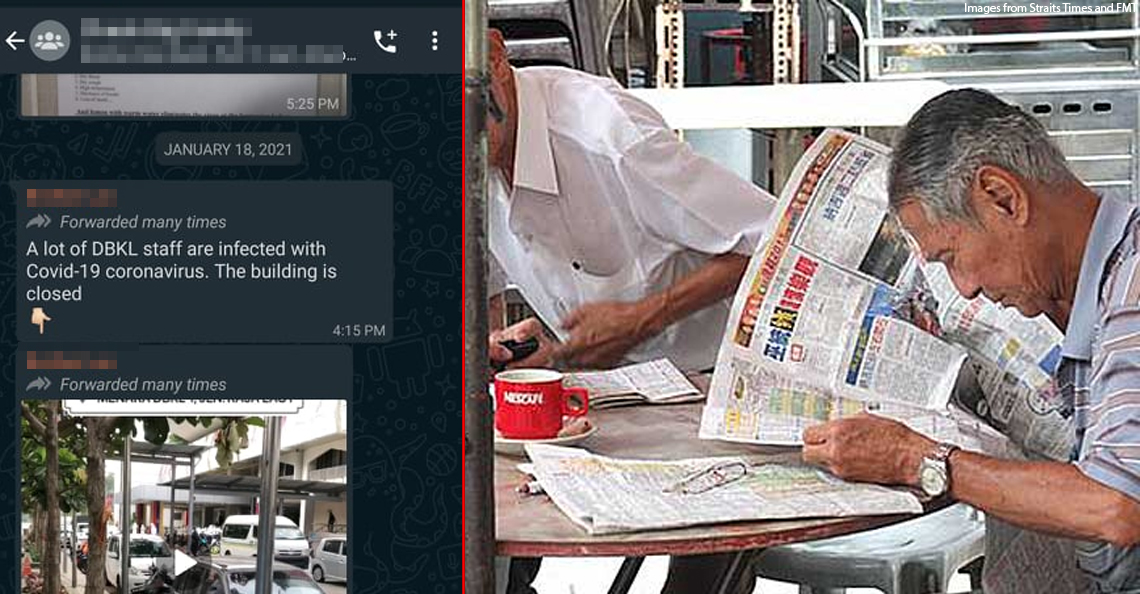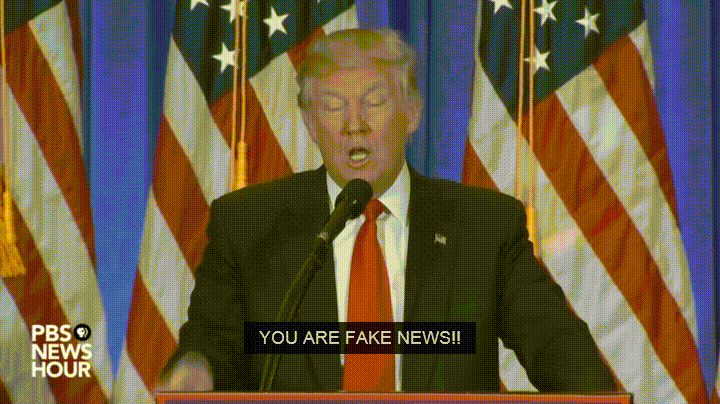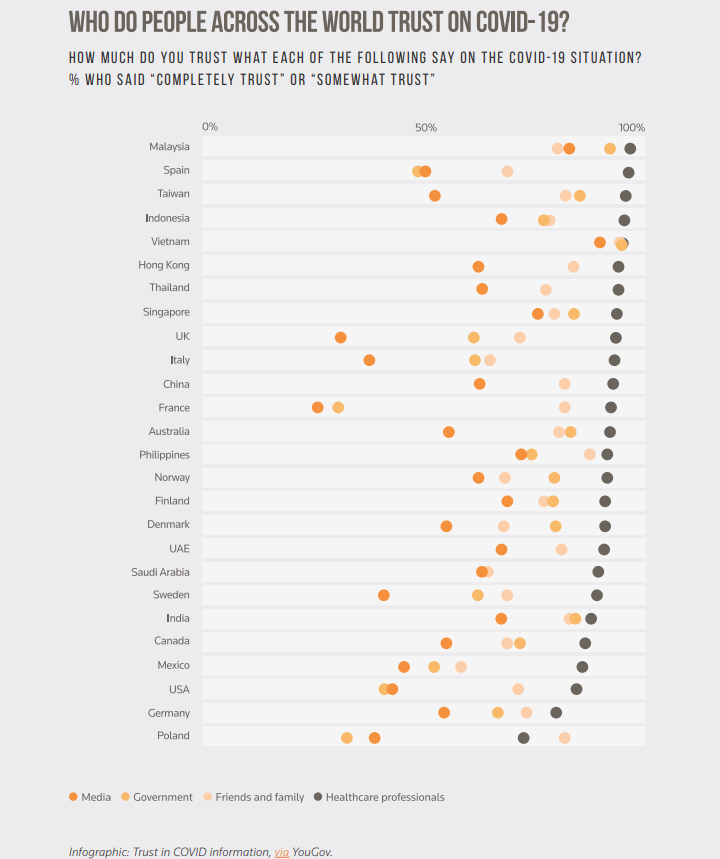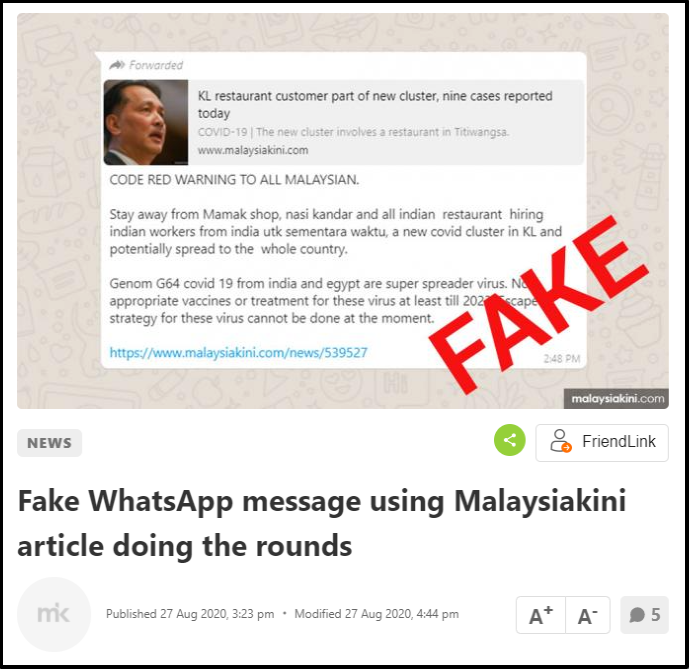Other countries trust friends more than the media on Covid-19 news. Except Malaysia.

- 351Shares
- Facebook340
- Twitter2
- LinkedIn2
- Email3
- WhatsApp4
“Fake news,” says the conspiracy theorist with the tin foil hat.

You probably know of them, or perhaps know one of them personally as well. And one of the common themes of these people is their distrust, hatred or displeasure at ‘mainstream media’.
However, it’s not always just these extreme cases who are a lil bit wary of the big news corps. Thomson Reuters – a, um, big news corp – recently completed research into the effect the Covid-19 pandemic has had on the journalism industry in developing countries. You can check it out yourself if you’d like by clicking here, but among the things we found interesting it in was that in many countries, there is a lack of trust in the media.
Well, almost all countries.
Malaysians trust the media more than friends and family on Covid-19
So first, a lil context. Thomson Reuters is a Canadian media company, and you’d probably know them from reading the news as it owns the Reuters news agency. They cover the news from around the world, which later gets picked up by your local newspapers. Thomson Reuters also runs the Thomson Reuters Foundation (TRF), their charity arm that runs programs like journalism training, free legal assistance and research among others.
As the Covid-19 pandemic spread worldwide like kaya on roti, TRF began working on a report about how the pandemic affected the media in developing countries. We’re not covering the whole report, but in a section on the lack of trust in media when it comes to coronavirus-related news, they said that across 26 countries, normally only 50% to 70% of people trust the media.
Malaysians however rate our news better, with 82% of the rakyat putting their faith in the news. Malaysia was also the only country that trusts the media more when it comes to Covid-19 news than their close ones.

Across the surveyed countries, it also appears as tho Malaysians tend to trust what healthcare professionals have to say on Covid-19 too. Interestingly enough, they also found that Malaysians trust the govt when it comes to Covid-19 information more compared to close ones and the media. Then again, we don’t know at what point of 2020 was this research done so….
You might be wondering tho: why is it important to have a trustworthy media? According to Prof Bernd Blobaum from the University of Munster:
“Journalism provides people with knowledge and experience that individuals usually cannot obtain. This is where trust comes into play: because the audience cannot check the content journalism provides it has to trust journalism.
Trust is a basis for journalistic operations,” – Prof Bernd Blobaum, in the paper Trust and Journalism in a Digital Environment
Without any trust in your media, people may become more likely to believe your friends and family instead. While it’s fairly likely that your close ones usually have the best for you in mind, sometimes that forwarded message from your second grandaunt on your father’s side about a “natural cure for Covid-19” might not exactly be true.
Your group chats may become a place for misinformation
Fake news on your Whatsapp group chats is probably a well known problem by now. Every couple of weeks or so, you may see headlines like this…

…or this…

Scientists have already found that when someone close to you shares unverified info, you are likely to share it without checking whether its true or not. Because of this, family group chats tend to become a place where fake news and misinformation can spread. This, plus the aforementioned fact that people tend to believe their close ones more than others, means that in a time such as the current Covid-19 pandemic, your group chats may end up as a cesspit of fake news.
It is perhaps nice to know that despite that, Malaysians seem to be more wary of misinformation, and more trusting of the news when it comes to Covid-19. And indeed, if you want to improve things even more, you can help watch out for instances of fake and/or unverified news from your close ones, and help them become more wary of it too.
Whatsapp understands the problem too, and appears to be actively trying to help lessen the amount of misinformation in its chats… or maybe cos they want your data for Facebook.
Specifically, they have a few key steps to eyeing out any potential fake news:
- Check if the message is forwarded: If it’s forwarded, there’s a double arrow icon. If you don’t know the original sender, double check the facts.
- Check the photos and media you get: Keep an eye for content that’s been edited to mislead people.
- Check the links or messages: Some links that have spelling mistakes may be fake websites meant to spread a hoax.
- Check your biases: You may be inclined to believe something that confirms your pre-existing beliefs.
- Verify the info: If you’re still not sure, google it la.
- Tell them if it’s fake news: If you realise someone shared fake news to you, inform them that it’s fake.
Hopefully together, Malaysians can get rid of not just the Covid-19 pandemic, but fake news as well.
- 351Shares
- Facebook340
- Twitter2
- LinkedIn2
- Email3
- WhatsApp4
